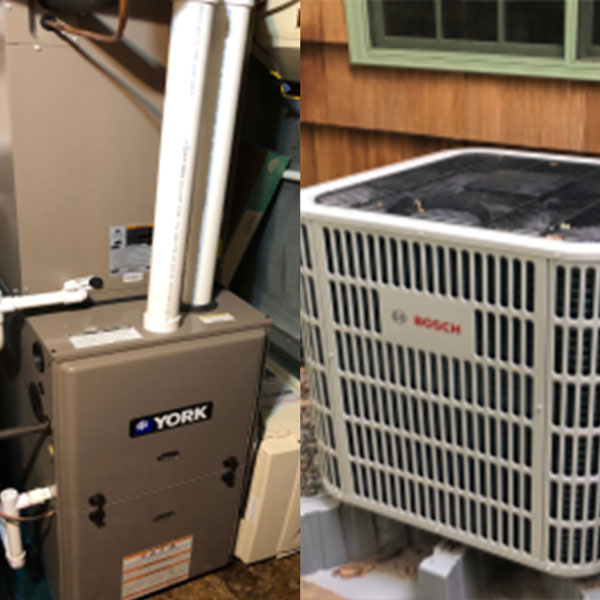Heat pump cooling and heating systems use electricity to capture and move sustainable energy that is all around us. These cleaner alternatives to fossil fuels use the same principles as refrigerators and air conditioning, providing both heating and cooling by moving heat in or out of a building. When heating, heat pumps take advantage of the heat found naturally in the air and ground, transferring that heat from the outside in—even when it’s cold outside! When cooling, heat pumps operate similarly to other cooling systems, pulling heat out of the building. Because they are powered by electricity, heat pump systems can run with renewable energy.
Better for your Budget
Homes with heat pumps report cutting their energy bills by half or more when switching from oil, propane, or baseboard electric.
Better for the Environment
Replacing fossil fuel heating with heat pumps reduces air and water pollution, carbon emissions, and uses energy more efficiently.
Better for your Health
Heat pumps dehumidify air, filter out allergens, and eliminate the need for fossil fuel combustion in your home.
Better for your Comfort
Got cold spots? Hot spots? Heat pumps provide even, stable temperatures using variable speed systems to provide the comfort you want.
Insulation and air sealing can lower your energy bills, increase comfort, and prevent damaging ice dams. Heating and cooling account for 75% of the energy used by homes in upstate NY. In some cases, up to 30% of this energy is wasted in unnecessary heat loss due to poor insulation. Your chosen installer will help guide you through the insulation and air sealing process to ensure your comfort, cost savings, and energy efficiency.
Geothermal (or ground source) heat pumps use a water mixture run through underground piping to move heat into or out of the building. Instead of burning fossil fuels or using traditional electrical resistance, they use a refrigerant and heat exchanger to move heat in or out of the building. They can lower both your greenhouse gas emissions and energy bills as they can use renewable energy and are incredibly efficient.
Air source systems use heat in the outdoor air to heat buildings. They can also “run in reverse” to cool buildings! Instead of burning fossil fuels or using traditional electricity, they use a refrigerant and heat exchanger to add or remove heat from the air indoors. Because they use renewable energy and are up to 2x more efficient than traditional heating and cooling technologies, they can lower both your carbon footprint and energy bills.

Dual Fuel systems combine an air source heat pump with a gas furnace, allowing the homeowner to choose the set point at which the heating switches from efficient air source to gas combustion based on the household’s environmental and cost preferences. Homes heated with gas but unable to make the full switch to heat pumps could choose dual fuel systems to reduce their emissions and protect against future fuel price spikes.
Contact us to see if a dual fuel system is right for you.
Heat pump water heaters use heat from the air to heat water for home use. Instead of using energy from burning fossil fuels, they use a refrigerant to pull in heat. These water heaters are up to 200% more efficient than traditional water heaters, and can help lower both your carbon footprint and energy bills.